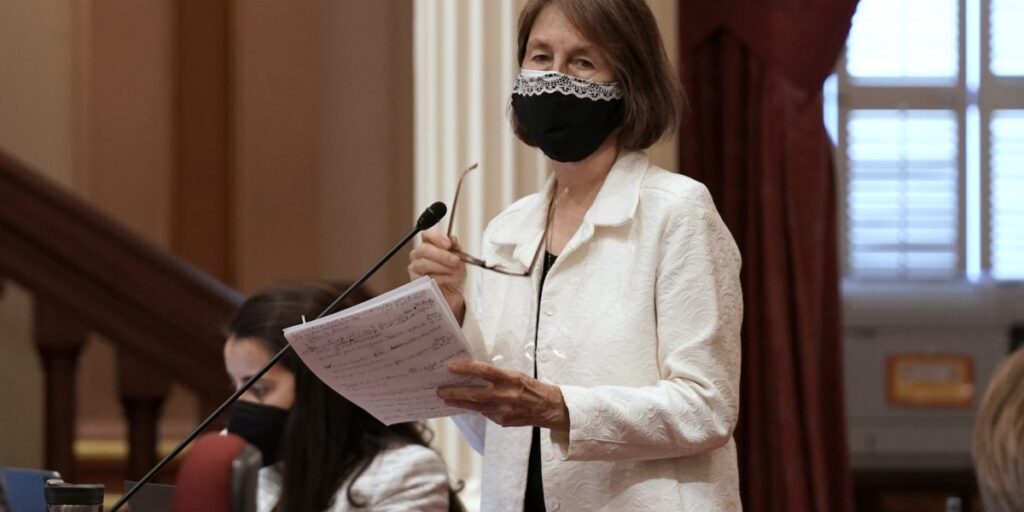
A California bill that would require marketplaces like eBay and Nextdoor to start collecting bank accounts and taxpayer identification numbers from large sellers that advertise online but collect payments offline has been fast-tracked by Democratic lawmakers and committees voted on it. on Tuesday.
The idea is that thieves will be less likely to resell stolen goods if the authorities can track them down.
The measure is part of a 14-bill legislative package to combat retail theft in the state. The California Retailers Association says the problem has reached crisis levels, although it is difficult to quantify because many stores are not sharing their data.
The proposal will be invalidated if voters pass tough-on-crime ballot initiativewhich qualified for the November ballot on Tuesday but still needs certification this month by the Secretary of State.
Supporters, including district attorneys and some major retailers, said the data collection proposal would put an end to organized theft rings seeking to resell stolen goods and close a loophole in existing laws that do not require platforms to track offline transactions.
The bill’s rules would apply to merchants who make at least $5,000 in profit and make at least 200 transactions per year.
Opponents say the measure’s new requirement is so broad and vague that some platforms will have to start collecting sensitive information from all users, hurting California e-commerce businesses.
“This will essentially force businesses out of California,” said David Edmonson of TechNet, a technology advocacy group. “I think most sellers are going to have to think long and hard about whether they want to provide that information to an online marketplace just to be able to sell, you know, home goods.”
Nathan Garnett, general counsel for OfferUp, a mobile marketplace that connects local buyers and sellers so they can transact in person, said the proposal would significantly benefit large retailers and hurt classified ads sites’ ability to do business in the state.
In OfferUp’s case, 11 million users in California would have to hand over their personal information before they could list something like a used coffee table or an old truck on the platform, Garnett said.
Opponents say the measure also contradicts the federal law it came into effect last July and requires online marketplaces such as Amazon to vet major sellers on their platforms as part of efforts to reduce the number of items that are stolen from brick-and-mortar stores and resold online.
The federal law was designed to protect sensitive websites, and there were no legal loopholes, said Carl Szabo, general counsel for Internet trade group NetChoice. The group, which represents companies including Facebook’s parent company Meta and Etsy, filed a lawsuit against Georgia last week to stop implementation of a state law that would have imposed similar requirements.
According to Szabo, requiring platforms to track all transactions, including those occurring offline, is an impossible task.
Democratic California Sen. Nancy Skinner, the measure’s sponsor, said law enforcement needs a tool to target professional reseller schemes, citing a case in San Diego in which a couple made about $8 million selling stolen goods online. Online retailers also already collect information from users through privacy policies that they must agree to in order to use the platforms, she added.
“The only people they would have to get this information from are the big sellers, not every person using their site,” she said.
The proposal is part of a legislative package that would toughen penalties for organized crime gangs, expand drug court programs and close legal loopholes to make prosecution easier. auto theft, among other things.
Lawmakers are racing to get bills to Democratic Gov. Gavin Newsom in a matter of weeks. Once signed, the bills would take effect immediately, a new election-year crime-fighting strategy designed to ease voters’ growing fears while maintaining progressive policies aimed at keeping people out of jail.


